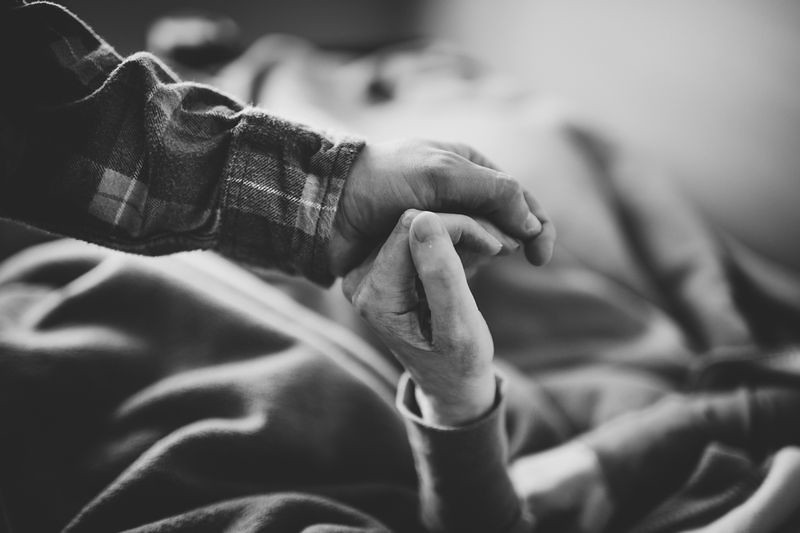
{On Sundays guest writers share their personal stories. My hope, and theirs, is that we will be able to consider someone else's perspective and therefore understand one another more. Also, it is a place for support so that if you are journeying this road, you will know you are not alone. This intimate piece shares some heartfelt and important advice for those that are caring for family and friends. I am so thankful to Emily for sharing this here. }
When we got married we decided to buy a house with my brother-in-law so that we could all be around to help out with mum. Care aids would come several times a day, getting her ready and helping with meals. She was safe on her own, allowing us to come and go as we needed, but slowly required more and more care from us. I managed her meds and prepped her meals.
It's a hard thing, having people in your house all the time. Some were difficult to work with and others absolutely fantastic, those going above and beyond, reading to mum and sitting with her, washing her hair and cutting her nails. Overall we're so appreciative and could not have done it without all the help we received from them.
I loved my mum-in-law dearly but because I'd never known her without dementia, I didn't know her as mum. This made some things like dealing with the occasional diaper incident easier, but it's hard you know, when you go to work as a nurse, then come home only to nurse still. It gets tiring, but you do it because she's family and she needs you, and it just becomes the norm.
It got to the point where she was unpredictable on her feet, requiring one of us to be at home every time the care aids came to help with transfers. This was for, I think, only three months or so, but it felt ages longer. We needed to always communicate to make sure someone was there and you feel a bit homebound.
Eventually we made the difficult decision to no longer get her out of bed. By that time she required total care and it was safer all around for her, us, and the care aids. They were coming two at a time then to help with changes and our amount of hands-on care eased up a little.
Mum passed away peacefully at home shortly after our son was born. There was grief, yes, but also relief, and then guilt tries to come on you for feeling that way. The timing couldn't have been more perfect; with a new little one to command our time and our care, it made the transition a bit easier.
We all miss her. She loved babies and we wish she had been able to be around to spend time with her own grandbaby as he grows up but we believe she'll meet him again one day in heaven.

{Photo credit: Tina Frances}
1. Take care of yourself too. You can only do as much as you can do. Ask for help as you need it and make sure you take some time away to recharge and renew. You can care best for someone else if you are rested and well yourself.
2. All the feelings are normal. It's hard no matter how much you love them. It doesn't make you a bad son, mother, friend. Give yourself some grace.
3. Crazy is okay for a season, but make sure you are working towards a more sustainable plan of care.
4. Surround yourself with a network of people, those that help carry with you the weight of care and responsibility and those who encourage and care for you. You don't have to do this alone.
Emily is a wife and mum of one adorable toddler, as well as an LPN. She shares bits of her life and her heart at The Table and the Road. You can also find her on Facebook and Instagram.
.jpg)


Thanks for being brave and sharing! I think you are ridiculously amazing to have served such a full house and family for such a season.
ReplyDeleteI agree! What a difficult yet important time it must have been. Really appreciate Emily sharing!
DeleteI think dementia is one of the cruelest diseases...it affects the essence of who you are and takes such a toll on families. Thank you for sharing, Emily!
ReplyDelete